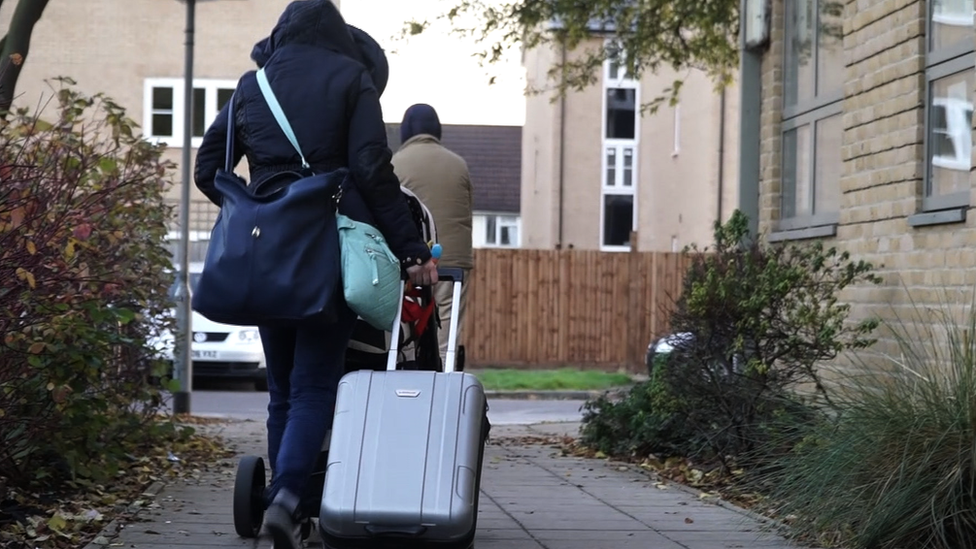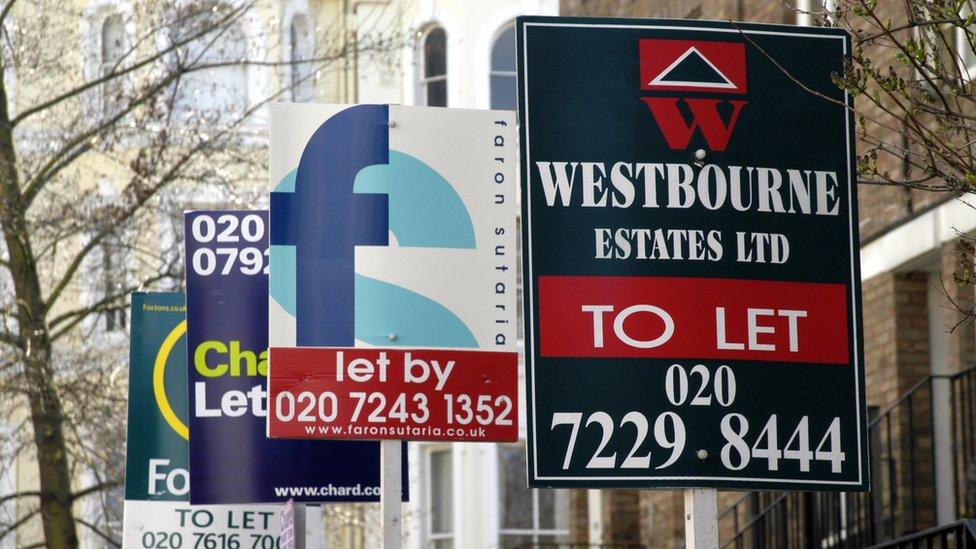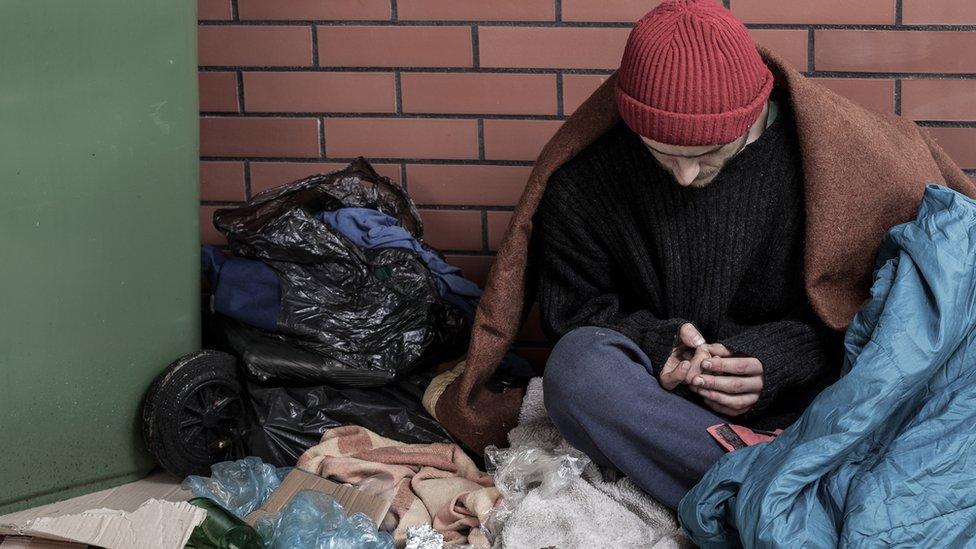Families forced into homelessness
- Published

Being evicted from the private rented sector is now the most common cause of statutory homelessness in London
Vulnerable families are being forced into homelessness due to increasing rents and cuts to benefits, BBC London has found.
The number of households made homeless due to private rented sector evictions has increased 600% since 2010.
Councils have increased spending on putting up the homeless in temporary accommodation by as much as 2,000%.
The private rented sector has been called "the major issue" causing homelessness in London.
Anne Baxendale, head of policy at Shelter said: "Cuts to welfare and a lack of genuinely affordable homes has sadly forced a growing number of Londoners into homelessness."
In London, the number of families being made statutorily homeless is at a 10-year high.
The council owes a duty to accommodate households classed as statutory homeless - local households with children or with individuals with special needs who are made "unintentionally homeless" .

Rent increases in London have been blamed for forcing families into homelessness
Being evicted from the private rented sector is now the most common cause of statutory homelessness in London.
'Priced out'
"It's the private sector which is the major issue," Lewisham housing councillor Damien Egan said.
London remains the priciest city to rent in the UK. A two-bedroom flat in London costs an average of £1,555 a month, according to figures obtained by the BBC.
While rents are increasing the overall benefit cap has been reduced from £26,000 to £23,000 (£442 a week) in London.
The dual impact of these changes has led to families being "priced out" of London's housing market, according to Councillor Egan.

Natalie says her boys are suffering because of the cramped conditions
'Burst into tears'
Natalie Monsoor and her three sons have been living in a single room in a Redbridge hostel for over nine months, since she was evicted from her privately-rented flat.
"When I pulled up to the hostel I just burst into tears," she told the BBC.
"I was hoping maybe three months maximum and we would be out of there. I mean there are 47 rooms in the hostel and only two kitchens.
"Some of the families there are seven kids to one family. And we all have to share bathrooms."
"It's not easy at all, and I think any mother would understand that when you see your child suffering, that's got to be the most difficult part."

The amount of money being spent by councils placing homeless households in temporary accommodation has also grown by an average of 60% since 2010.
Responses to Freedom of Information requests found the increase had been driven by a sharp rise in the amount spent on housing families in bed and breakfasts across London.
Temporary Accommodation is partly financed through central government subsidy.
The amount councils receive from government to cover rent is capped at 90% of the 2011 Local Housing Allowance rate - the rate paid by government to cover housing benefit.
A study by London Councils, external estimated London boroughs are meeting one quarter of the cost of Temporary Accommodation services from their General Fund, leading to cuts in other services.
A Department for Communities and Local Government spokesman admitted "there's more we can do" to tackle homelessness.
"That's why we're spending £550 million to tackle homelessness over the course of this Parliament, as well as investing £7 billion to build the affordable homes this country needs."
Watch the full report on Inside Out London on BBC One in London at 19:30 GMT on Friday 31 March.
- Published27 January 2017
